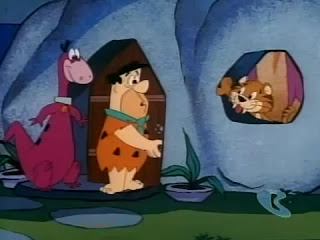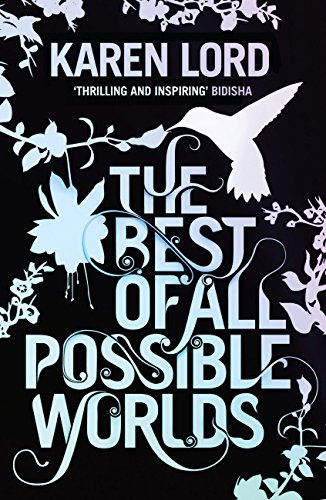My first idea for good practice in energy management is to change the model of working. I’ll tell you where this is coming from based on my own experience.
When I first moved to Britain with my then-husband Todd, I left a good solid teaching job behind. My first novel had just been published, I was deep into writing Someone to Watch Over Me, and Todd was sitting on a nice two-book deal with some early foreign sales, so we had a pot of cash advances. There was more money in the writing game in the mid-1990s than there is now, by the way. I did not like the look or pay of the teaching profession in the UK so I decided to try to make it as a writer for a bit as I figured out my next move. That was when I found out that writing on the side does not necessarily scale up to writing full-time.
Now, one of the first pieces of advice I remember getting about full-time writing was:
Treat it like a job. Get dressed and go to work and sit at the desk for eight hours a day, and then knock off and have a beer.
Hello? Frankly, if that’s the way it goes, then why leave a 9-5 job at all? If I wanted to work 9-5, I would work 9-5. For me the whole point of living a different way is to live a different way, not to go to an office and sit there like a minion.
But the awkward truth is this: without anybody riding me, I went from cranking out a few thousand words a week with a day job to doing maybe a couple thousand more without a day job, with the rest of my time spent flailing, skiving, procrastinating, and beating myself up with guilt over my own selfishness that I wasn’t doing something useful.
I began to doubt myself. I began to doubt whether I was the real thing.
I’ve always been a person of waves and surges. This could be down to brain chemistry; my father was bipolar. I am not, but nor am I a nice level plane of a person. I’m exceedingly lumpy, and when I was young I didn’t know how to get things done given the unpredictability of my underlying energy patterns. I thought I had to just wait for the right surge and then ride it, but you can never be sure if or when another surge will come, or what direction it will take you in.
Writing full-time, my mind would look for an escape, some easier way to live other than being faily and inadequate and slightly helpless, and I became insecure because I could not find such a way. Todd and I went to see the stone circle at Avebury, and in the gift shop I bought myself a leather necklace that was a clay or stone talisman, and carved in it was a (Celtic? Can’t remember) rune that meant Tenacity. *
I started to actively teach myself to be tenacious. I returned to the physical discipline of martial arts. I started running. And after some months of living with uncertainty I got myself into a contract and then into another contract, and I began to work on deadline. I loved this, because the deadlines were achievable provided I wasn’t too much of a fuck-up, and they acted as anchors to keep me from getting lost at sea. I learned that in the last days of a deadline I could work like a house on fire. I learned that I could tap into reserves that were outside of me—the feeling was almost like a drug.
That’s how I know that if I really need energy, I can get it. It’s there on an emergency loan basis.
But deadlines can’t be faked, and without a contract you don’t have them. When you’ve worked under contract, the most dangerous time is when the contract is not renewed and you can’t find a buyer for your work. Obviously, the loss of income is scary. For me, it felt like having the entire universe dump me for somebody hotter. But even after getting over that, there was another problem. It’s that working under contract I had come to adopt an industrial model of what I was doing.
An industrial model means that we think in terms of regular rates of work flow and industrial-age metrics for productivity. We say: how many hours did I work? Or, how many words did I write? Or, what do I have to show for myself as product? This is a factory mentality. Adopting this thinking is totally understandable when working for a commercial engine that demands output at specific, regular intervals. It may even be valid within that very limited framework, at least some of the time and for some people. To me it’s a blunt instrument that deadens me as a human being. I would even argue that commercial publishing mechanically selects writers that are able to cope with the industrial model, and throws out everyone who can’t. Fine. Way of the world, right?
Except, I am the real deal, and no publishing machine is going to convince me otherwise. I have been writing since I was seven years old, so I’m going to say: Trish, you are OK. You are not broken. To keep going, you just need a different way to look at this. I decided that what I need to do is actually unlearn some stuff that I’ve learnt through being a professional. This means getting rid of stuff, not adding it. This isn’t a one-time event. It’s more like the opening to the old Flintstone’s cartoon. You throw the cat out the door and it comes back in through the window.
Over the last several years (and a couple of published books) I have chucked out three things:
-
The idea that I’m making a product for sale. I might sell it, I might not. That’s not why I’m making it.
-
That I need to work in a certain industrious way.
-
That my work is in any way measurable numerically.
So what do I mean by ‘work in a certain industrious way’? I mean, dismantling some assumptions about my work process, like the assumption that there is a linear relationship between time and conscious effort put in and quality of outcome. I mean starting to pay attention to what actually happens when I stop bossing myself around and yelling at myself.
For example, a lot of people try to write every day as a baseline for establishing writing practice. This is fine; I’m not saying anything against it. Establishing a regular periodicity to our work can be helpful for lots of reasons, including habituating ourselves to working so that we start to enter a desired frame of mind as a matter of conditioning to a certain time or place. Great, but it’s not the only way. There is nothing really special about a particular chunk of time, small or large, beyond its physical practicalities. And the problem with having certain habits is that when the habit is broken or the situation changes, we are thrown. If I say, ‘I am going to write every day at 7 pm for an hour’ and then for whatever reason I don’t, I’m now in a negotiation with myself over why I was bad for not doing the thing, or why I am a victim because I couldn’t do the thing, or whatever. And somehow? It always ends in self-pity (and frequently in cookies).
Or take wordcount. It’s such a nice simple metric, especially for novelists where we are logging training miles to build our mental systems. But as tools go, it’s blunt AF. I have engaged in hours and days and weeks creating something and feeling great about pounding out those words, only to realise that I wrote in the wrong direction or that I just generated stuff out my ass to appease the wordcount gods and convince myself that I was worthy because look how hard I worked. It’s fine to write off into the Blue, to go the wrong way, to write out your ass. I’m not saying people shouldn’t do that. I’m saying that generating words for brownie points isn’t a good way to think about work. Carrot and stick isn’t a good way to do anything. Those ways of dealing with ourselves are all factory-worker, class-system, imperialist methods.
The issues we need to be dealing with are not rate-of-flow issues. They are not how-many-widgets issues. The real questions are: where is the energy? How can I optimise my access to energy?
When we want to do something, we will do it without being paid, without being rewarded, without anybody’s sanction. We will do it because we want to, and the energy to do it comes up out of us from some unseen source, and it fills us, and we maybe get in trouble because we were so absorbed that we forgot to do important adult things or we violated some code of silence but we don’t even care.
Right?
If this is true, then why is it so hard to sustain things? Why, for many of us, are these rushes of inspiration so capricious? My take is that partly it’s hard because we’re human. I am not a machine, nor do I want to be. Also: our visions are always bigger and better than we are. We get tired. We get distracted. We let stuff get under our skin and the next thing we know we’ve talked ourselves out of continuing. We lose energy and we don’t know how to get it back. We felt the heat before, so we think this fire is always going to ignite spontaneously, and when it doesn’t, we don’t think to go out in the forest and gather fuel and tinder and find something to make a spark and huddle over it and blow on the tinder and burn our fingers and drop the matches and try again. While swearing elaborately.
It’s hard to have a dynamically balanced relationship with energy. Either there isn’t enough of it, or we don’t know how to keep and direct what we have, and we think this means we suck. But in fact it’s just that work is always work is always work, and there isn’t any magic, and we don’t suck for being tired and unmagical. Except that there also is magic, and not all work is the same, and things are kind of random but nature doesn’t hate us, so it’s OK to trust nature because she has always got us. Not because nature is nice, but because nature is us.
There will be one more post about this (I think) where I’ll unpack how I’m thinking about energy right now, both for science and for writing.
* I subsequently lost the necklace—it literally fell of my neck at some unknown point while I was wearing it. It should have said ‘Irony.’













